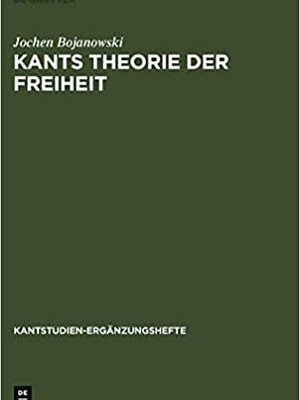
Jochen Bojanowski
In the present-day debate on free will, Kant's theory of freedom has been dismissed as bad metaphysics. This however leaves decisive questions partially unanswered, namely 1. To what concept of freedom does Kant lay claim? 2. What functions are ascribed to it? 3. What proof does Kant advance to justify it? The author demonstrates that Kant's theory has not been adequately represented in all three points, and resumes the negotiation about its systematic validity. Bojanowski demonstrates why the practice of morality cannot dispense with Kant's concept of autonomy as absolute freedom, and on the basis of Kant's epistemic critique he defends this concept against a deterministic moral scepticism. In conclusion, he demonstrates why this concept does not fail when faced with the possibility of morally evil acts, but that in fact talking about morally evil acts is not possible without it.